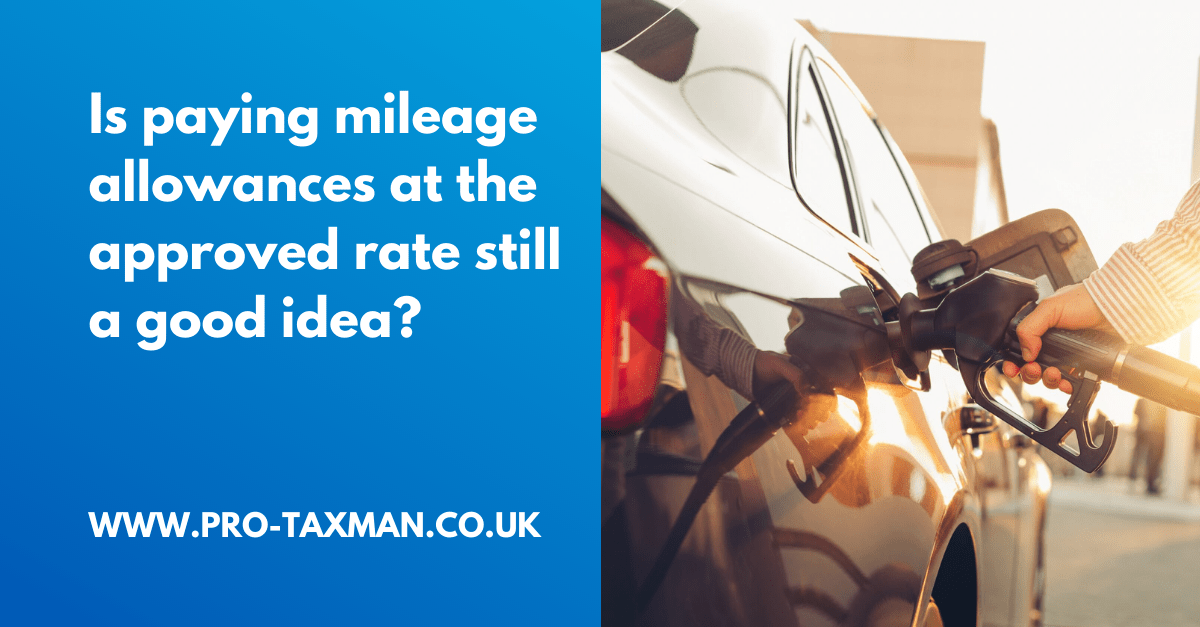Where an employee uses their own vehicle for business journeys, their employer can cover the associated costs by paying a mileage allowance. As long as the allowance does not exceed that payable at the approved rate, payment of the allowance is tax-free. Employers can instead reimburse the employee’s actual costs associated with using their own vehicle for business. However, as this is difficult and time consuming, paying approved allowances should be an easy win, were it not for rising fuel prices.
The approved mileage rates have not been increased since April 2012, yet fuel prices are now considerably higher than they were 10 years ago. Given the current climate of rapidly rising fuel prices, is paying mileage allowances at the approved rates still a good idea?
Approved mileage allowance payments
Under the approved mileage allowance payments system (AMAPs), employers can pay mileage allowances to employees tax-free as long as the amount paid does not exceed the ‘approved amount’.
The approved amount is simply the number of business miles in the tax year multiplied by the approved rate. For cars and vans, this is set at 45p per mile for the first 10,000 business miles in the tax year and at 25p per mile for any subsequent business miles. For motor bikes, the rate is 24p per mile.
As long as the amount paid is not more than the approved amount, it can be paid tax-free. However, if it exceeds the approved amount, the excess is taxable. If instead the amount paid is less than the approved amount, the employee can claim tax relief for the shortfall.
A similar system applies for National Insurance. However, as National Insurance is not worked out cumulatively, the 45p per mile rates applies to all business mileage undertaken in the employee’s own car or van.
Impact of fuel prices increases
The approved mileage rates have not increased since April 2012, when petrol was around £1.42 per litre. At the time of writing (in June 2022), it was around £1.85 and rising. In the 10 years since the last increase in the approved rates, fuel prices have increased by more than 30%.
The approved rates are supposed to cover all costs associated with using a personal car for business, including running costs, insurance and depreciation. In a climate of rising costs, it is now doubtful whether they do.
The employer can instead make payments based on the actual costs tax-free. However, the associated record keeping is likely to prove prohibitive. Alternatively, they can agree higher bespoke rates based on actual costs with HMRC, but again the level of work involved is unlikely to make this a popular option.
Employers who wish to make a more accurate reimbursement of employee’s costs can pay above the approved mileage rates, but this will trigger a tax liability for the employer. Where the amount also exceeds the approved amount for National Insurance, Class 1 National Insurance contributions are payable by the employer and employee, and must be processed through the payroll.
The employee can claim a deduction for any difference between the amount paid and the actual costs incurred; however, as these are tricky and time consuming to work out, most employees will simply not bother and take the hit.
The solution is really for HMRC to increase the approved rates to reflect current prices so that they do what the system is supposed to do.
Need professional accounting service or accounting advice? Contact us to book a 15-min Free Consultation with us today.
To find out more please follow us on Facebook, Twitter, or LinkedIn. Feel free to contact us on 0333 006 4847 or request a call back by texting 075 6464 7474

